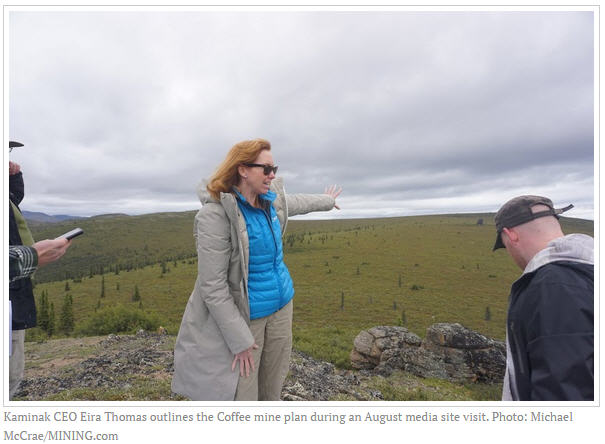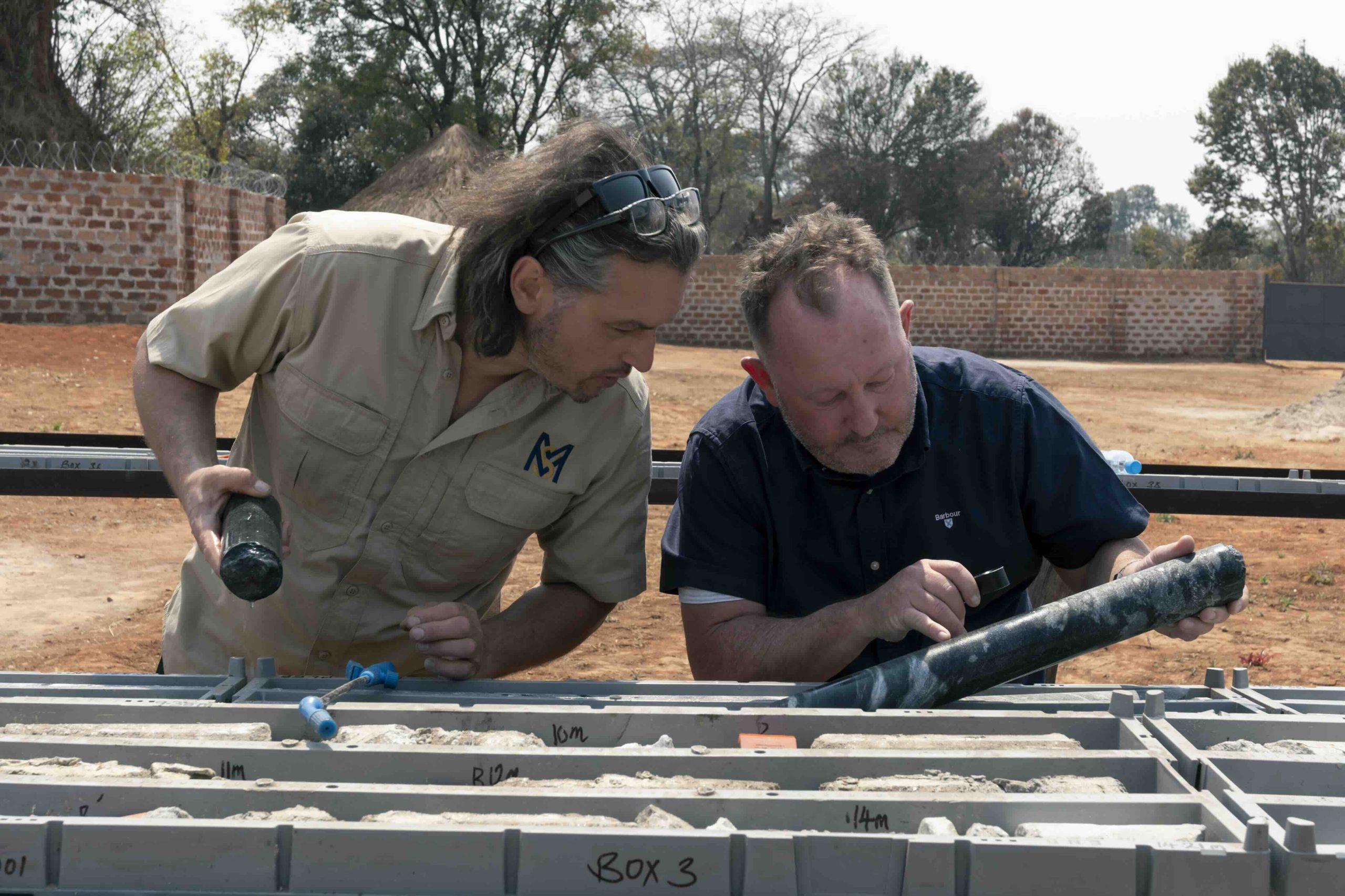Vancouver junior miner Kaminak Gold hitting all the right notes in Yukon

All the stars seem to be lining up for a small Vancouver junior miner with a small but high-quality gold property in the Yukon.
With gold prices inching up – and gold mining stock with it – Kaminak Gold Corp. (TSX-V: KAM:) delivered a feasibility January 7 on its Coffee Gold project in the Yukon that demonstrates the mine not only works at current gold prices, but would be paid for in just two years.
Kaminak’s stock was up more than 3% to $0.95 in mid-day trading January 7, following the release of the feasibility study.
A small, high-quality gold deposit, the Coffee mine would have a low capital cost of just $317 million (including a $26 million contingency), and an internal rate of return of 37%, based on gold prices of US $1,150 per ounce. The all-in sustaining costs are pegged at US$550 per ounce.
The company estimates gold production of 1.9 million ounces over the life of the mine.
The project has attracted mining magnates Ross Beaty and Lukas Lundin, each of whom have a 9% stake in the project, and has earned the plaudits of analysts and newsletter writers like Brent Cook of Exploration Insights and Rick Rule, CEO of Sprott US Holdings Inc., who seem to be as impressed with the company’s pedigree as its ore quality.
The company is led by CEO Eira Thomas, who co-founded Stornoway Ventures Ltd. – now Stornoway Diamond Corp. (TSX:SWY) – which Thomas led as CEO until 2008. She also served as Stornoway’s executive chairman and is a director and co-founder of Lucara Diamond Corp. (TSX:LUC).
Last year, Cook told BNN that Kaminak was “one of the few good projects out there that offers a relatively low capex to build.”
The Coffee deposit is close to surface and easy process, using heap leaching, which lowers the capital costs by eliminating the need for a mill.
“The great thing about this project is that it’s simple, it’s high margin, it’s located in Canada and it represents a good value even in today’s gold price environment,” Thomas told Business in Vancouver.
“We’ve got some good quality shareholders that have really been sponsoring our efforts and that has really allowed us to go out and raise the capital we need to keep this project on the fast track.”
According to the new feasibility study, the mine would have a life of 10 years, with annual production of 200,000 ounces for five years. The company expects further exploration in the area could extend the mine’s life past 10 years.
“We see very significant resource expansion potential within our project area and we will start to turn our minds back to a bigger exploration effort over the next couple of years as we go through permitting,” Thomas said.
The company has agreements in place with local First Nations and unlike many other projects in the Yukon or Northern B.C., the Coffee deposit has relatively good access to road and river transportation.
The construction of a 37-kilometre road and upgrading of another 214 kilometres of existing road upgrades are the project’s biggest infrastructure costs.
Despite a brutal prolonged bear market for mining, the project is well-financed, with $28 million in cash on hand.
The company expects permitting to take about two years and plans to be in production by the fourth quarter of 2019.
{{ commodity.name }}
{{ post.title }}
{{ post.date }}




Comments